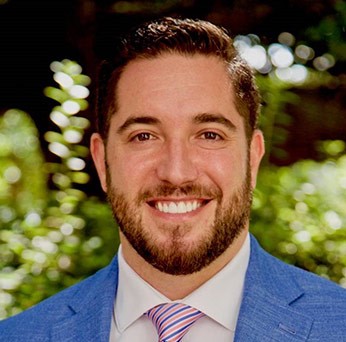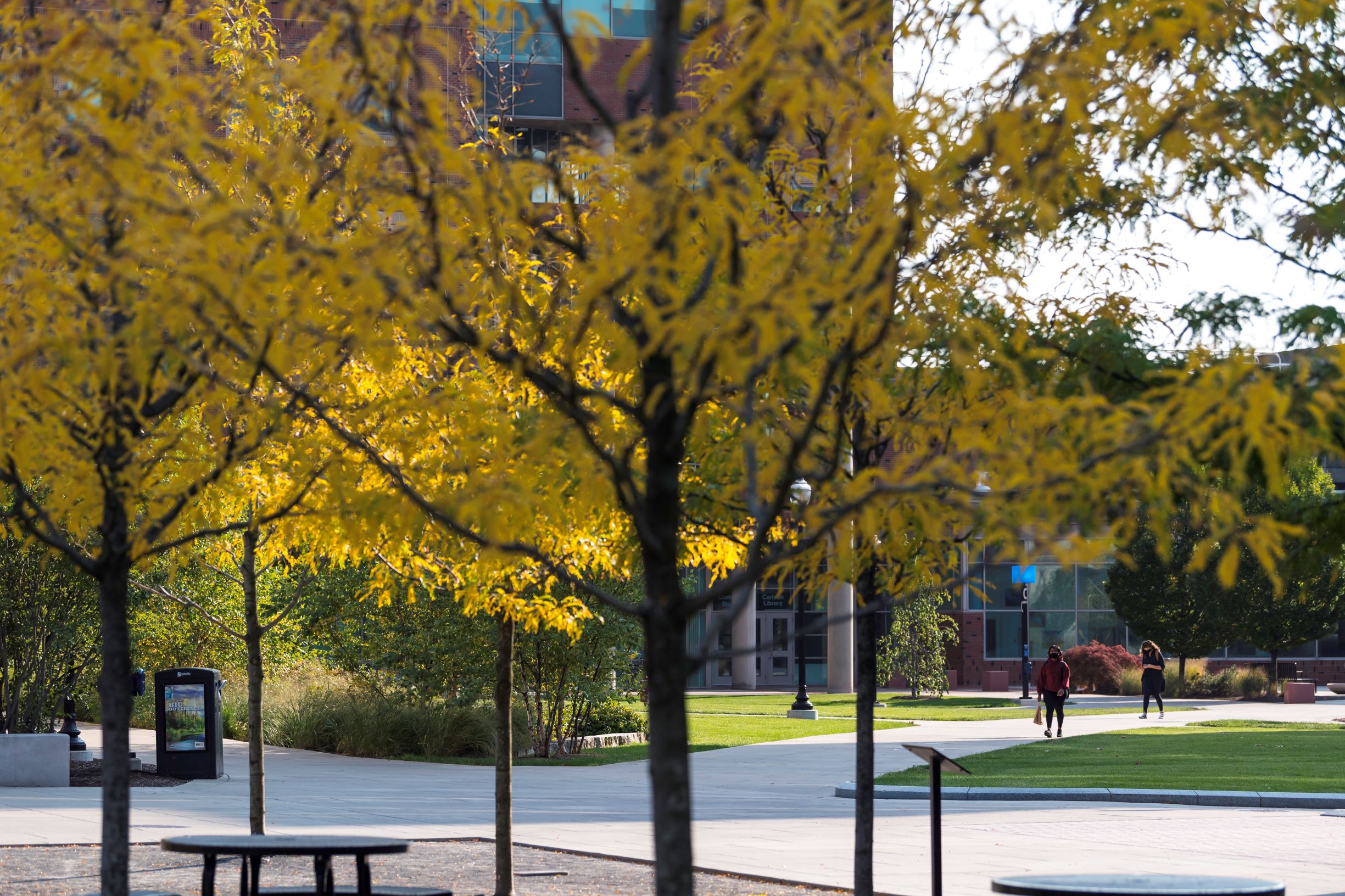When Hurricane Katrina tore through New Orleans in 2005, Robert Alexander was the assistant vice president for enrollment management at Tulane University.
In the wake of the Category 5 storm, Tulane’s infrastructure sustained $650 million in damage and had to be closed for four months. It took years for the university to completely recover. Alexander was one of the key members there who helped fully rebuild enrollment numbers.
Fast forward 15 years – and following stints at University of the Pacific and Millsaps College – and Alexander finds himself in the middle of another public crisis. He is the relatively new Dean of Admissions, Financial Aid and Enrollment at the University of Rochester during the COVID-19 pandemic.
There are very few who fully grasp the magnitude this kind of perfect storm can have on an institution’s enrollment. But Alexander came prepared to deal with it and brings the right perspective.
“Every difficult experience in life and career, you can either look at as an obstacle or an opportunity,” Alexander says. “Certainly, there were a lot of obstacles to get through during Katrina. And there are lots of obstacles now. But there are also opportunities to grow and change.”
Meliora. It’s a Latin word embraced by the university that means “even better”. For the University of Rochester, a world-class research institution, that not only means leaning on tradition but continuing to be transformative for its 12,000 students and those just arriving. This year, it means reaching out more than ever.
Though relatively new in town, Alexander already has started to make an impact, even as he operates safely from home in the virtual space. In early October, he connected with prospective students with a simple post: “Five tips for applying to college during the pandemic”. In it, he openly and transparently talks about the stresses and the anxiety facing them and about how they can overcome them.
He says, “It’s OK to mourn what should have been, but don’t let that stop you from making the most of the opportunities that you DO have.”
One of them might be a chance to shine at the University of Rochester.

University Business sat down with Alexander to talk about his first few months in Western New York, the merits of the esteemed university, the admissions process and the future for students:
What was it like to accept the position (in January) and then officially move into it in June in the middle of pandemic?
It was nerve-wracking professionally and personally. How could I hit the ground running? How do I get to know new team members when we’re only working virtually? I spent a lot of time thinking through how I was going to do that. I committed to one-on-ones with every member of my team. I made my calendar fully available to people, so they could sign up for time if they ever they needed it. And I’ve also been doing open Zoom office hours to provide another less-formal space for people to talk with me.
Was there anything you took from the Tulane experience that helped in the current crisis?
Absolutely. That communication piece is the easiest one to look back and say, that’s a big aspect of Tulane’s success story. And, in this moment, there’s not much risk of overcommunicating right now. Sometimes there’s not much information available, but keeping the channels of communication open in both directions is incredibly valuable to build that trust with any audience, internal or external.
What have been some of the biggest challenges in the admissions process this year?
Engaging parents. How can we get more parent information earlier? How can we communicate directly to those parents? If they’re going to be anxious helicopters, how can we create a well-lit, clear landing pad for them so that we’re channeling their energy and maybe their anxiety in the right kinds of ways.
With prospective students, it’s being honest with them and telling them, we don’t have all the answers. The old playbooks aren’t necessarily working right now. We’re going through this one step at a time with them. My big message is, it’s going to be OK. There’s not only one perfect university for any student. I hope that students are really thinking about what they value and what they’re looking for, rather than just sort of chasing rankings or applying to the schools that somebody else says are the right ones for them.
You created the five tips for students who are going through the college application process? One of them is telling students to ‘trust the advice of college admissions staff’ by not focusing on test scores (which are optional) but talking about their experiences in essays or interviews. Explain why that is important.
Looking at the national trends, we’re very concerned about some of the students with the least resources and the least access to higher ed to begin with, now exacerbated by reduced guidance counseling and increased family responsibilities – whether that’s caring for younger siblings while parents are doing essential work, or students who themselves are working. Our message to students is, tell us those stories and what you’re learning from that because that could be a much more powerful lesson than anything that we could get looking at your standardized test scores.
We are a holistic admissions school. Last year, we saw about 17% of applicants applying test optional. This year, we’re seeing so far about 47% of applicants applying test optional. Hopefully, they’re giving us much better and deeper context about themselves and the things that are really important to them.
What are the main selling points of an education at the University of Rochester?
Rochester already has that niche as a world-class research institution. We’re on the smaller end, size-wise, so students can really connect with amazing professors as mentors. Plus we’ve got an incredible mix of aid available for the best and brightest students. The most interesting component is our very flexible curriculum. Students at Rochester have a lot of choice to study what they love. There are no required classes, but a menu of options that fit into students’ clusters in diverse academic subject areas. Of all the graduates in any given program, there’s probably no two that have exactly the same courses on their transcript when they’re finished. That appeals to students who are very high achieving and want that research university experience, but also want real ownership over determining and studying what they love.
What’s unique about Rochester from an enrollment management perspective is we also have a really robust merit program. We have a real representation and resonance with the middle class from Rochester and through the Northeast, but also across the country and around the world.
It’s fun as an enrollment manager to feel like I have all the tools in the toolbox available to shape the entering classes. It creates a much more representative student body on campus. It also helps with alumni who can see that people from middle class families can gain access to Rochester through a combination of need-based funds and merit scholarships.
What have you seen in terms of enrollment and interest since you started in the position?
We are very consistent with where we’ve been. We did see some reduction in early decision applicants. That’s very understandable when students couldn’t visit their top schools before making that commitment. Early decision went down a little bit, but regular decision has gone up a little bit.
We have seen more students interested in us because we are a medical research institution. We’re the biggest employer in this region because of our network of health care facilities. People understand that we’re making very informed decisions to keep students, faculty and staff safe because we have that expertise. We’re also seeing a big increase in the numbers of students applying for our epidemiology programs. We were already robust in pre-health, but we are seeing even more interest in those programs. Call it the Fauci Effect.
What are you most looking forward to as you navigate through the next 3-6 months?
One of the best experiences so far has been working with some of our cohort programs and getting to interact with some admitted early-decision students. I’m looking most forward to getting to know more of the current students and this incoming class. I think they’re very impressive people. The way they are navigating this very turbulent time with optimism and energy is what keeps me motivated to get up every morning and do this work.
What’s the one lesson you’ve learned in your experiences that could be helpful to others in dealing with the fallout of the pandemic?
As a senior administrator, it is more important than ever to be transparent. Be open. Be flexible to the needs of our teams. We are not just managers of metrics. We are leaders of people. Normally, enrollment managers are thought of as spreadsheet geeks, getting in there with the numbers. I’ve got a team of nearly 100 incredibly talented people who don’t know what’s around the corner. None of us knows exactly what to expect out of this year. You can’t run a regression model that will tell you much about student behavior during a pandemic.
So, what can you do? You can empower and rely on those closest to any piece of information to help you make the best decisions possible. For that to happen, you need to have trust across the organization. As a new leader trying to build that trust, the only way I can do it is to be honest and transparent, available and flexible.







